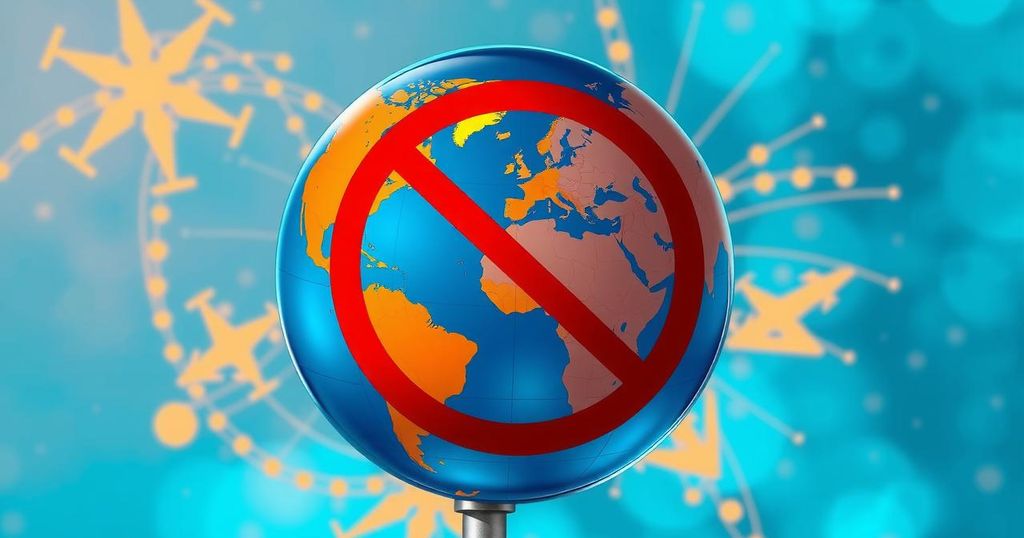The Trump administration may impose new entry restrictions impacting individuals from Afghanistan, Pakistan, Iran, Libya, Somalia, Sudan, Syria, Yemen, Chad, North Korea, and Venezuela. This follows an Executive Order mandating scrutiny of security vetting processes in these nations. Advocacy groups warn of severe consequences for Afghan refugees. Civil rights organizations oppose the measures, stating that current vetting is already stringent. An official announcement is anticipated soon.
The Trump administration is reportedly planning new entry restrictions for several countries, potentially affecting travel and visa access for citizens from Afghanistan, Pakistan, Iran, Libya, Somalia, Sudan, Syria, Yemen, Chad, North Korea, and Venezuela. This measure follows an Executive Order issued on January 20, which mandates an evaluation of nations lacking adequate security screening and vetting procedures. The intention is to tighten entry requirements, with officials contemplating partial or full suspensions of admissions from these countries, with an official announcement expected soon.
During President Trump’s first term, a series of travel bans were enacted beginning in 2017, with the initial focus on certain Muslim-majority nations. This policy was referred to as a “Muslim Ban” by critics and faced significant backlash. Despite facing legal challenges, the U.S. Supreme Court upheld the third iteration of the ban in 2018, asserting it was within the President’s authority to enforce national security measures.
While the final list of affected countries is yet to be disclosed, both Afghanistan and Pakistan are under review for potential inclusion. Advocacy groups, including the International Refugee Admissions Project (IRAP), have expressed concerns that such restrictions could severely affect Afghan refugees, particularly those holding Special Immigrant Visas (SIVs), who are escaping persecution from the Taliban.
Additionally, Pakistan is reportedly being evaluated due to issues related to security and its vetting practices. Should the country be included in the travel ban, it may adversely impact numerous Pakistani nationals seeking U.S. visas.
Civil rights organizations, including the American Civil Liberties Union (ACLU), have swiftly condemned the proposed travel restrictions, arguing that such policies would be detrimental. Critics further assert that the State Department and Department of Homeland Security (DHS) already maintain some of the strictest vetting processes worldwide, rendering increased restrictions unnecessary.
Currently, the Trump administration is working to finalize its list of countries potentially facing these new restrictions, as mandated by the Executive Order, with the State Department and DHS allotted 60 days. With the deadline approaching, an official announcement regarding the travel restrictions is anticipated soon.
The Trump administration is contemplating new travel restrictions for several countries, primarily focusing on Afghanistan and Pakistan, alongside others. Advocacy groups are raising alarms about the potential impact on refugees, particularly from Afghanistan, where individuals are facing significant risks. Civil rights organizations oppose these measures, highlighting the existing strict vetting practices. An official decision regarding the restricted countries is expected imminently, following the review mandated by the Executive Order.
Original Source: www.travelandtourworld.com




